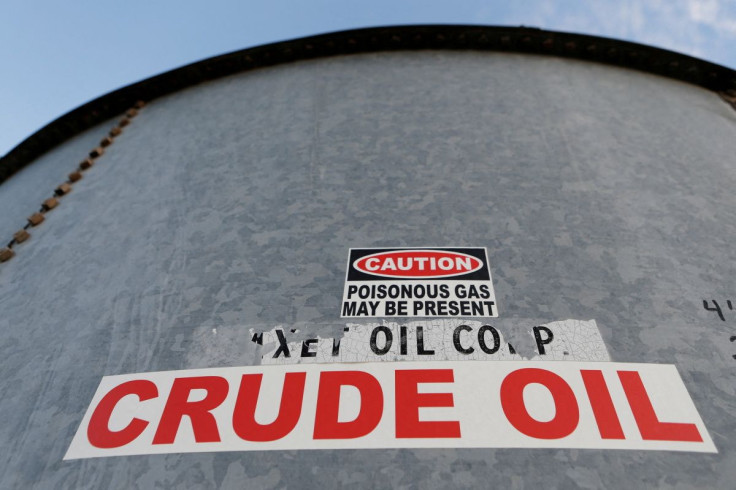Oil Prices Slump As Investors Fear Fed Rate Hikes Will Hurt Demand

Oil prices dropped by nearly $2 a barrel on Thursday after another round of remarks from Federal Reserve Chair Jerome Powell fanned worries U.S. interest rate hikes would slow economic growth.
Brent crude futures settled at $110.05 a barrel, falling $1.69, or 1.5%. U.S. West Texas Intermediate (WTI) crude futures settled at $104.27 a barrel, down $1.92, or 1.8%.
Powell said the Fed's focus on curbing inflation was "unconditional" and the labor market was unsustainably strong, comments that stoked fears of more rate hikes.
Investors have been paring positions in risky assets as they assess whether inflation-fighting central banks could push the world economy into recession with higher interest rates.
"If the U.S., and the rest of the world goes into a recession, you can significantly impact demand," said Houston oil consultant Andrew Lipow.
Also, high gasoline prices could be starting to slow demand, said Robert Yawger, director of energy futures at Mizuho in New York.
"That's definitely worked its way into the conversation," said Yawger, adding he thought gasoline still had room to rise. U.S. retail prices are currently averaging $4.94 a gallon, down about 10 cents from the peak, according to AAA.
Major U.S. oil refiners and Energy Secretary Jennifer Granholm emerged from an emergency meeting over the issue with no concrete solutions to lower prices, according to a source familiar with the discussions, but the two sides agreed to work together.
The most recent estimates by the American Petroleum Institute, according to market sources, showed U.S. crude and gasoline inventories rising last week, which also weighed on prices, Yawger said.
Official weekly estimates for U.S. oil inventories were scheduled to be released on Thursday but technical problems will delay those figures until next week, the U.S. Energy Information Administration said, without giving a specific timeline.
OPEC and allied producing countries including Russia will likely stick to a plan for accelerated output increases in August in hopes of easing crude prices and inflation as U.S. President Joe Biden plans to visit Saudi Arabia, sources said.
The group known as OPEC+ agreed at its last meeting on June 2 to boost output by 648,000 barrels a day in July, or 7% of global demand, and by the same amount in August, up from the initial plan to add 432,000 bpd a month over three months until September.
© Copyright Thomson Reuters 2024. All rights reserved.







